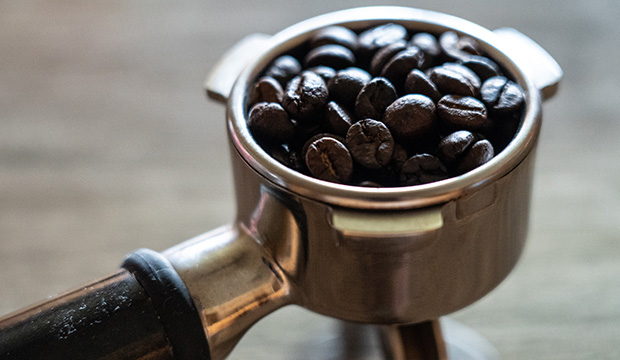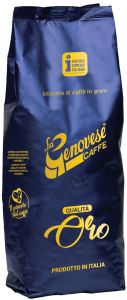
5-7 Workdays Article No. 10223
Aroma(s) : Chocolaty, Nutty
Article No. 10223
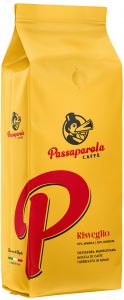
5-7 Workdays Article No. 13970
Aroma(s) : Chocolaty, Malty
Article No. 13970
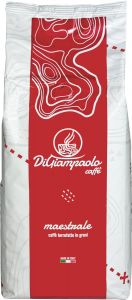
5-7 Workdays Article No. 10592
Aroma(s) : Chocolaty, Nutty
Article No. 10592
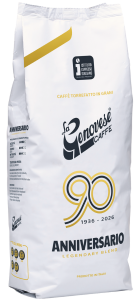
5-7 Workdays Article No. 11043
Aroma(s) : Chocolaty, Floral, Fruity
Article No. 11043
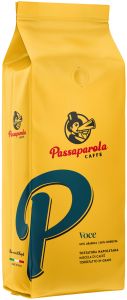
5-7 Workdays Article No. 18550
Aroma(s) : Chocolaty, Malty
Article No. 18550
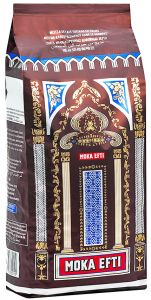
5-7 Workdays Article No. 10103
Aroma(s) : Chocolaty, Nutty
Article No. 10103
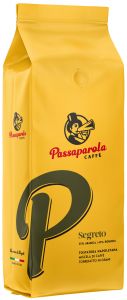
5-7 Workdays Article No. 15210
Aroma(s) : Chocolaty, Malty
Article No. 15210
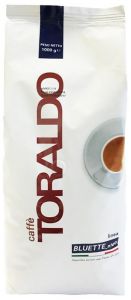
5-7 Workdays Article No. 1855
Aroma(s) : Chocolaty, Malty
Article No. 1855
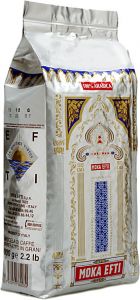
5-7 Workdays Article No. 10102
Aroma(s) : Nutty, Fruity
Article No. 10102
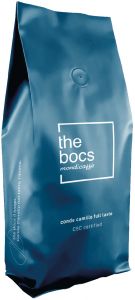
5-7 Workdays Article No. 10750
Aroma(s) : Chocolaty, Nutty, Fruity
Article No. 10750

5-7 Workdays Article No. 1239
Aroma(s) : Chocolaty, Malty
Article No. 1239
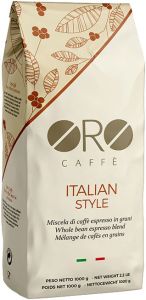
5-7 Workdays Article No. 10319
Aroma(s) : Nutty, Malty
Article No. 10319
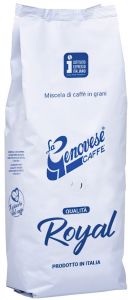
5-7 Workdays Article No. 10222
Aroma(s) : Chocolaty, Nutty
Article No. 10222
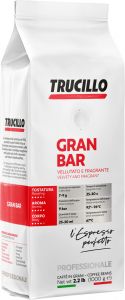
5-7 Workdays Article No. 10699
Aroma(s) : Chocolaty, Fruity
Article No. 10699
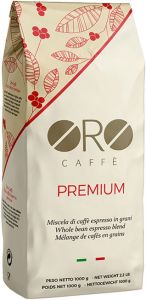
5-7 Workdays Article No. 10318
Aroma(s) : Chocolaty, Nutty
Article No. 10318

5-7 Workdays Article No. 1241
Aroma(s) : Chocolaty, Fruity
Article No. 1241
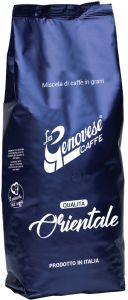
5-7 Workdays Article No. 10235
Aroma(s) : Chocolaty, Nutty
Article No. 10235
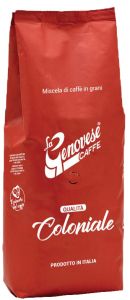
5-7 Workdays Article No. 10236
Aroma(s) : Chocolaty, Fruity
Article No. 10236

5-7 Workdays Article No. 10275
Aroma(s) : Chocolaty, Malty
Article No. 10275
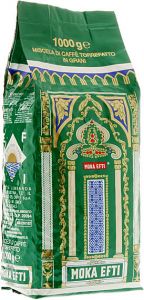
5-7 Workdays Article No. 10104
Aroma(s) : Nutty, Malty
Article No. 10104

5-7 Workdays Article No. 10898
Aroma(s) : Chocolaty, Floral, Fruity
Article No. 10898

5-7 Workdays Article No. 10677
Aroma(s) : Chocolaty, Fruity
Article No. 10677
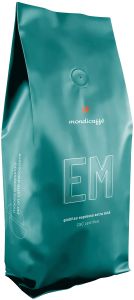
5-7 Workdays Article No. 10752
Aroma(s) : Chocolaty, Nutty
Article No. 10752
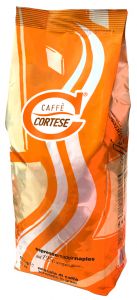
5-7 Workdays Article No. 10509
Aroma(s) : Chocolaty, Nutty
Article No. 10509
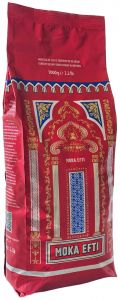
5-7 Workdays Article No. 10154
Aroma(s) : Chocolaty, Cloves, Cinnamon, Nutty, Fruity
Article No. 10154

5-7 Workdays Article No. 10973
Aroma(s) : Almond, Nutty
Article No. 10973
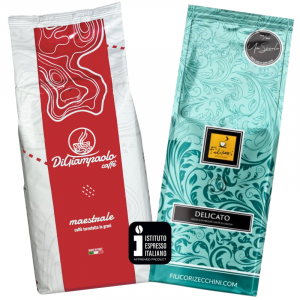
5-7 Workdays Article No. 10618
Article No. 10618

5-7 Workdays Article No. 1237
Aroma(s) : Chocolaty, Floral, Fruity
Article No. 1237
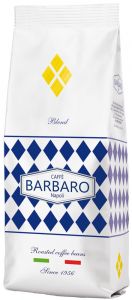
5-7 Workdays Article No. 10393
Aroma(s) : Chocolaty, Nutty
Article No. 10393
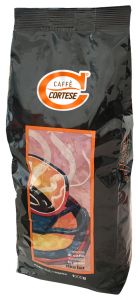
5-7 Workdays Article No. 10924
Aroma(s) : Chocolaty, Nutty
Article No. 10924

5-7 Workdays Article No. 10953
Aroma(s) : Chocolaty, Nutty
Article No. 10953

5-7 Workdays Article No. 10885
Article No. 10885

5-7 Workdays Article No. 1929
Aroma(s) : Nutty, Fruity
Article No. 1929
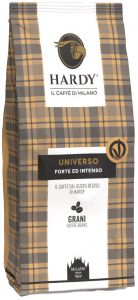
5-7 Workdays Article No. 1926
Aroma(s) : Chocolaty, Nutty
Article No. 1926
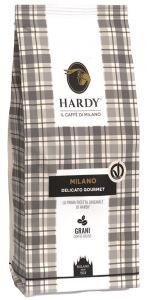
5-7 Workdays Article No. 1928
Aroma(s) : Chocolaty, Floral
Article No. 1928
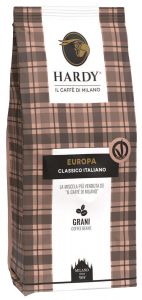
5-7 Workdays Article No. 1927
Aroma(s) : Nutty, Malty
Article No. 1927
Coffee beans - Half truths and myths
What does it take to make a good espresso coffee? Among other things, first you need good coffee beans - it seems obvious, doesn't it?
In reality, when it comes to espresso coffee beans, there are still some half-truths and myths circulating, even among die-hard coffee lovers.
No wonder, because a coffee bean is related to many factors: the type of bean, the fineness of the processing, the roasting, the grinding, the utensils and, last but not least, the taste itself - and as we all know, this is a matter of debate.
In this article, we will go into detail about what exactly espresso coffee beans are, what makes them so special, and what to look out for when buying them.
Espresso coffee beans VS Filter coffee beans
A premise: there is no coffee plant on which espresso coffee beans grow. No different beans are used to make espresso coffee than are used for normal coffee.
The real difference lies in the roasting process and the duration of roasting because for an espresso coffee, the bean must be roasted darker and longer. For all types of coffee beans, the roasting process is, therefore, alpha and omega. A general rule is that a light roast works best with a slower extraction method, such as filter coffee. The situation is different for dark roasts, for which the faster extraction method, such as espresso coffee, is more suitable.
Using lightly roasted coffee beans for espresso extraction can result in the result not being the type of drink you expect. A filter coffee bean extracted as espresso can be almost undrinkable. The taste is too sour, because the acidity is clearly too high. For this reason, it is better to use a properly processed espresso bean for the preparation of espresso. The same applies to the preparation of all espresso-based coffee specialities, such as latte macchiato or cappuccino.
In summary, espresso beans are coffee beans that are usually roasted slowly (18 to 25 minutes, depending on the type of bean) at a low temperature. The long roasting process ensures that the espresso is aromatic, low in acidity, and intense in flavour. An espresso blend that contains a good proportion of Robusta coffee beans spoils the palate with a fantastic crema - a thick foamy layer that lies velvety on top of the espresso. These beans are ideal for high-pressure coffee preparation with a filter-arm coffee machine and thus bring out an incredible cornucopia of aromas. Dark roasted beans have an intense dark brown colour and, in southern Italian roasters, can even have an oily sheen. This occurs when the oils of the coffee rise to the surface during the long roasting process. This refined sheen is therefore not a quality defect. On the contrary, these coffee beans have low acidity and, despite their strong flavour, are more digestible than many others. However, for slightly oily beans, a separate coffee grinder should be used, which can be cleaned easily. This is because, like all oils, coffee oil becomes rancid after a while. Cleaning a coffee grinder that is integrated into an automatic coffee machine is rather complex. We, therefore, do not recommend the use of such beans with these machines.
Two types of coffee beans: Arabica and Robusta
Opinions differ on the two main types of coffee beans. Many prefer the Arabica variety, as this bean is often referred to as 'superior quality'. However, this is not correct as a general judgement and cannot be confirmed here. It depends - as is often the case - on consumer preferences and the quality of the respective beans specifically. But how do the two types of beans actually differ from each other?
The two types differ mainly in taste, price, and growing conditions. Arabica beans tend to have a softer, slightly sweet taste, with a hint of sugar, fruit, and berries. The acidity of the bean is a little more pronounced.
The flavour of Robusta, on the other hand, can be described as strong and astringent, with hints of dried fruit in the aftertaste. Robusta beans contain twice as much caffeine as Arabica beans and are sometimes considered to be of inferior quality. On the contrary, there are also high-quality Robusta bean varieties available on the world market. We Italians particularly appreciate a good Robusta content. This is responsible for an intense, earthy, and spicy taste. A perfect contrast to the sweet Arabica bean. Together they give expressiveness and balance to the blend. Not forgetting the dense crema, which develops on the espresso mainly due to the Robusta bean.
Robusta coffee plants are easier to grow. They can grow at lower altitudes than Arabica plants and are less sensitive to pests and weather conditions. Hence, their name. They bear fruit much faster than Arabica, which takes several years to ripen, and produce more yield per tree. Robusta is grown exclusively in the eastern hemisphere, mainly in Africa, Indonesia and Vietnam. Arabica is grown mainly in Latin America, but also occasionally in Africa and Papua New Guinea. Colombia produces exclusively Arabica coffee beans. Some countries, such as Brazil and India, produce both. Practically around the equatorial belt.
The more delicate Arabica bean is naturally more expensive, due to its climate and soil requirements. Ultimately, however, it is a matter of personal taste which type of bean one prefers. Often a blend of both tastes better when the quality is right.
What are the best coffee beans for espresso
It is true that most people prefer a dark roast for their daily espresso coffee. If you want to use an espresso for your latte, a dark roast will best support the taste of the milk with a stronger flavour. Darker roasts tend to become oily more quickly than lighter roasts. It is important to bear in mind, however, that some automatic coffee machines or even some coffee grinders should not process these oily beans for long.
Single origin (pure coffee from a single variety) or blend? - The classic Italian espresso is a blend - a combination of different coffee beans, including those from different countries of origin. Each bean variety contributes its own flavour nuances to the blend. The master roaster is the experienced and respected connoisseur who combines the right beans in the right proportion here. Compared to filter coffee blends, a higher proportion of Robusta beans is often used. Thanks to the sophisticated ratio between the different beans, the taste is particularly harmonious and consistently good.
Tasting a single-origin coffee also has its appeal. It is very interesting to taste the characteristics of a particular bean. Preparation as a filter coffee is a perfect method for this coffee.
It is always gratifying to pay attention to the quality of espresso beans. Traditional coffee roasting companies that use the gentle rotary drum roasting process usually offer the best coffee beans. The consumer can recognize this by the information on the packaging and the image of the bean. The roasting date should not be more than three months behind. When looking inside, one should note that the beans are dark brown, but not completely black. You should also question the quality if the espresso coffee beans show cracks, are broken, or already have a musty smell. A very uneven roast colour can also be a quality defect.
You can use these tips to choose the right espresso bean for you, but to find the right taste, you will have to try different varieties. Online coffee shops offer cheap tasting sets of espresso beans, which is a great help in finding and choosing the right scale for your taste.
General rules
Regardless of your taste, you should follow the general rules for buying espresso coffee beans.
▶ 1. Pay attention to freshness and do not buy coffee from the supermarket, as it can be assumed that the beans have been stored for some time. Online shops buy in small quantities from roasting companies, so you can be sure that it has not been on the shelf for a year. The expiry date is usually still a long way off.
▶ 2. Store the beans properly. Do not spill them, but leave them in their original bag and close it tightly away from light after opening. A clothes peg for coffee bags will be of great help. The storage temperature should not be too high, but please do not put the bag in the refrigerator. Coffee is a sponge for odours and absorbs everything that is released.
▶ 3. Buy only quality beans because an inferior espresso will also taste inferior. Good beans are harvested when they are fully ripe and then sorted by hand to eliminate the bad ones.
▶ 4. Buy whole coffee beans if possible. Already ground espresso coffee is bound to taste "lifeless" after a few days.
Preparing coffee beans for espresso
To get the most out of your espresso beans, you need to take a few important things into account when preparing them.
Only use certain types of equipment: filter-arm machines are the most suitable because they operate at a sufficient pressure to prepare a real espresso. An automatic coffee machine can also produce good results, but you have to make sure that the setting is correct and that the beans are not too oily so that the grinder does not become rancid. Good results can also be achieved with the classic mocha.
Always pay attention to the right degree of grinding; for espresso, the beans must generally be ground finer than for normal coffee, as espresso machines work with a lot of pressure and have a relatively short brewing time.
Now there is nothing stopping you from enjoying a great espresso coffee. By now you should be optimally prepared to make the right choice the next time you buy espresso beans. We hope you will enjoy it!

